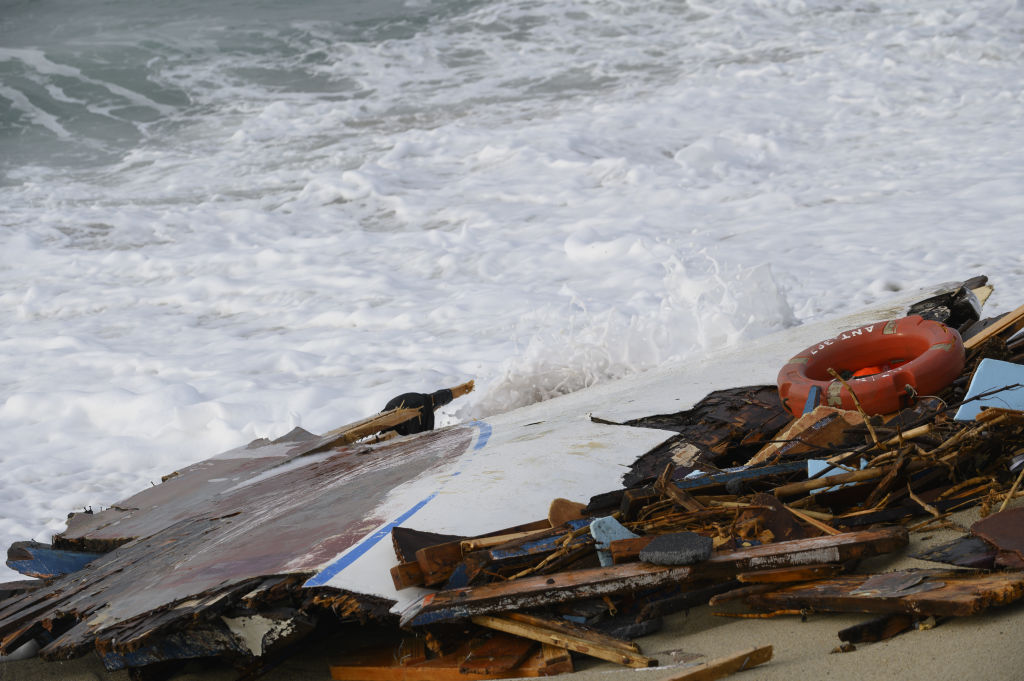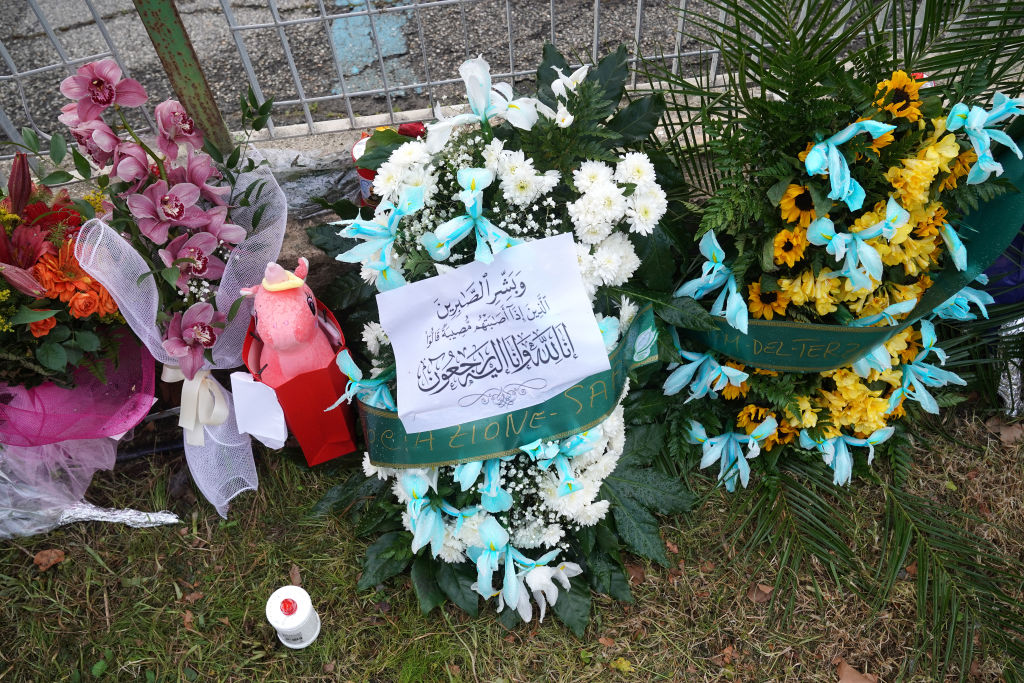
At least 64 people died after a wooden boat carrying over 150 refugees was wrecked off the coast of Italy over the weekend. The deaths of these migrants—hailing from Afghanistan, Pakistan, Somalia, and elsewhere—comes as Italy continues to clamp down on efforts to rescue those who try to enter Europe by water.
Crossing “the Mediterranean Route” into Italy is the deadliest migrant crossing route in the world, but also increasingly the only option for migrants hoping to escape conflict in their homelands.
“If you are a migrant and want to reach Europe, you have limited [options,.” says Luigi Achilli, an Italy-based senior researcher at the Migration Policy Centre. “You either fly or cross the sea.”
Flying is by far the safest and quickest option, says Achilli, but it’s risky, as migrants need to forge expensive travel documents and risk being caught along the journey. On the other hand, smugglers will offer cheaper “packages” for those trying to cross by sea, guaranteeing multiple trips if the boat is intercepted along the route—a more feasible option for those desperate to escape.
The UNHCR estimates that more than 100,000 refugees arrived in Italy by boat in 2022, and that almost 1,400 migrants died while trying to cross the central Mediterranean in 2022.
Italy’s new Prime Minister, Giorgia Meloni, has made clear her commitment to enacting laws that make it more difficult for migrants to enter Italy through the Mediterranean, and recently proposed a measure that places restrictions on NGO search-and-rescue boats. One expert told TIME that the move is not a novelty, but rather an extreme approach to the European Union’s policies on migration already in effect. Here’s what to know.
What has Italy’s government been doing to address deaths on the Mediterranean?
Meloni expressed “deep sorrow” over the tragedy, but Achilli says that the hardline stance she has taken against migration since coming to power in October will make safe passage for migrants even more unobtainable.
The law, passed by Italy’s Parliament last week, requires NGO search-and-rescue ships operating in the Mediterranean to sail to a designated port rather than the closest port, and prevents them from looking for other migrant boats in distress. Captains face fines of up to 50,000 euros if they fail to comply.

“The new law against rescue NGOs that has been approved does not only create substantial obstacles for NGOs operating in the Mediterranean, it also increases the dangers faced by migrants who seek to reach Europe.” says Achilli.
The move was widely condemned by rescue organizations in a joint statement in January, who said it would cause more deaths in the Mediterranean. Meloni has accused rescue boats of aiding human traffickers, a claim the charities have denied. “They need a scapegoat.” says Achilli.
“Meloni’s government is not a radical change in terms of migration policies from previous governments in Italy, or the rest of Europe,” Achilli explains further. “Meloni’s government is pushing the dominant approach on migration to an extreme.”
How has the E.U. approached an influx of refugees in recent years?
During her campaign, Meloni proposed a deal with Libya in which the country would house refugees and prevent them from trying to make it to Europe. She compared the plan to a similar “off-shoring” agreement the E.U. signed with Turkey in 2016 that gave the country 6 billion euros in exchange for stopping migrants who tried to travel to Europe from their shores.
The war in Ukraine put the E.U.’s migration policy into the spotlight, when the bloc invoked a “temporary protection directive” that gave Ukrainian refugees entering Europe temporary status that granted them many of the same rights as E.U. citizens.
The decision was in sharp contrast to how the bloc has approached refugees fleeing Syria and Afghanistan in the past. Poland and Hungary, which pushed back against refugees from Asia, Africa, and the Middle East, welcomed Ukrainians with open arms.
Just months prior, following the Taliban takeover of Afghanistan, E.U. interior ministers released a statement vowing to “prevent illegal migration from the region” rather than offering protections for Afghans fleeing the country.
The dangers of “off-shoring” refugees
Migrants trying to start anew don’t always find a welcome home in these so-called “third countries”. “These countries are not always safe countries,” says Achilli. A 2022 U.N. human rights report detailed widespread and systematic human rights violations and abuses against migrants in Libya. Syrian refugees in Turkey have often been treated as second-class, facing discrimination, poverty, and the risk of deportation.
“In the short term, this offshoring of border control does stem irregular migration, but not in the long term because migrants get right directed along different routes.” says Achilli.
Offshoring increases the number of smugglers, says Achilli, and also puts Europe at the mercy of countries like Libya and Turkey, who can use their willingness to take in migrants as a bargaining chip in other issues.
Achilli says that the answer to preventing migrant deaths along the central Mediterranean is simple, but not one the E.U. is keen on following anytime soon. For those fleeing immediate danger, smugglers and dangerous routes are the only option—but if the E.U. instead looked to expand its policies by granting humanitarian visas, expanding European countries’ resettlement programs, or developing alternative legal routes for refugees—such desperate moves wouldn’t be necessary, Achilli says.
“The catastrophe we’re witnessing in the Mediterranean Sea could be easily addressed if we improve and multiply the legal channels of mobility,” says Achilli. “But what we are doing is going in the other direction.”
More Must-Reads from TIME
- Cybersecurity Experts Are Sounding the Alarm on DOGE
- Meet the 2025 Women of the Year
- The Harsh Truth About Disability Inclusion
- Why Do More Young Adults Have Cancer?
- Colman Domingo Leads With Radical Love
- How to Get Better at Doing Things Alone
- Michelle Zauner Stares Down the Darkness
Write to Simmone Shah at simmone.shah@time.com